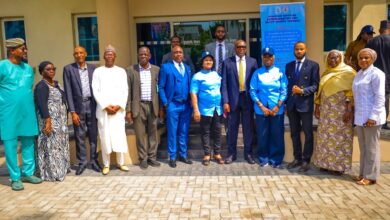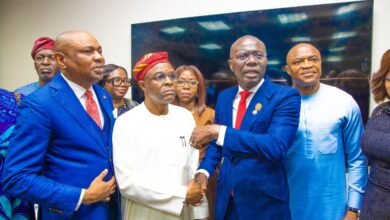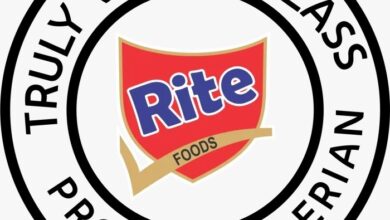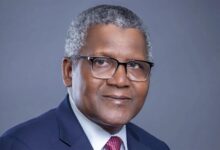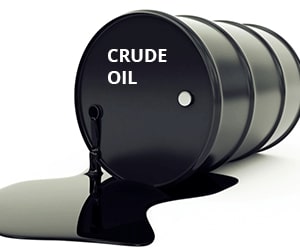
Nigeria’s biggest economic cash cow – the oil sector runs with poor accountability with defective oversight making an oil rich country ranked as poor over wasted opportunities
Since the beginning of Nigeria’s fourth republic in 1999 that began with the second reign of Olusegun Obasanjo, four Nigerian presidents appointed themselves as Ministers of Petroleum, except for Goodluck Jonathan who had Diezani Allison Madueke in charge
As Presidents doubling as ministers of petroleum, who surpervised and reported to themselves, the country has not witnessed a better sense of accountability and prudence under such arrangements.
It was not also better under Jonathan as the regime is left with battered integrity over allegations of sleaze committed by Madueke. The system left too many things hidden and made a compromising band of the legislature that should be doing oversight job on the ministry and ministers.
Before the national oil company- Nigerian National Petroleum Cooperation Limited (NNPCL) admitted to being indebted to the tune of $6, the country was plunged into a back and forth argument with marketers and other stakeholders as to how true it was about the indebtedness.
The NNPCL’s acknowledgment of its $6 billion debt to oil traders is a critical juncture for the company. The audited financials revealed that receivables from the Federation were ₦9.4 trillion in 2023, up 331% from ₦2.18 trillion in 2022.
The country’s system allowed so much lax that that even lawmakers of both chambers of Nigeria’s National Assembly failed to use their oversight powers to enforce transparency and accountability.
The legislators failed in getting the system to work for the common good leaving the NNPCL as a behemoth beyond proper regulation using basic corporate governance principles.
Before the coming of Tinubu’s government Reuters had reported that Nigeria spent more than 11.35 trillion naira ($25 billion) on fixing the country’s three moribund refineries within a decade
Despite calls for a forensic audit of the matter, successive governments had paid no attention even as the refineries are far from working, thereby keeping the oil rich but very poor county in financial straits relying on fuel imports, which it subsidised to keep prices low
NNPCL’s Middleman Role Between Dangote Refinery and Oil Marketers
Despite the commencement of production of petrol by the Dangote Refinery, there is shortage of petrol distribution across the country
The Chief Corporate Communications Officer, NNPC Ltd, Olufemi Soneye, in a press release stated that the NNPC Ltd. will only fully offtake PMS from the DRL if the market prices of PMS are higher than the pump prices in Nigeria.
While responding to a press release by the Muslim Rights Concern, MURIC, which alleged that Dangote Refinery is being undermined by actions of the Nigerian National Petroleum Company Limited (NNPC Ltd), Soneye stated that “The pricing of petroleum products from any refinery, including the Dangote Refinery Ltd. (DRL), is determined by global market forces”
“The recent changes in PMS prices have no impact on the DRL or any other domestic refinery’s access to the Nigerian market. In fact, if current prices are perceived as high, it presents an ideal opportunity for the refinery to sell its products at lower prices in the Nigerian market”
The NNPC Ltd, which is in charge of supplying fuel in the country also announced that the DRL and any other domestic refinery are free to sell directly to any marketer on a willing buyer, willing seller basis, which is the current practice for all fully deregulated products. The present price of fuel at NNPC is N865, other marketers sell for N1,100, N1,200 while the black market price is N1300, N1,400.
According to Soneye “NNPC Ltd. has no desire or intention to become the distributor for any entity in a free market environment, and therefore, the notion of becoming a sole offtaker does not arise”
However, when the Dangote Refinery commenced processing of petroleum on 3rd September, 2024, the company’s founder, Aliko Dangote disclosed that fuel will be available for purchase at the filling stations within 48 hours.
He said ” I pray that within the next few days, you won’t see any petroleum queues.We are waiting for NNPC and I hope they will be ready like yesterday ”
He added that NNPC is supposed to distribute and sell his refinery’s fuel under a special agreement.
Worthy of note is the statement of Devakumar Edwin, the Vice President in charge of oil and gas , Dangote Industries in an interview in a news media which disclosed that Dangote Refinery will end up exporting it oil products if NNPC or domestic suppliers fail to buy from them.
He said ” Dangote Refinery will will end up exporting petrol as we are doing with Jet Fuel and Diesel”
He added that the refinery is capable of loading about 2,900 tankers daily but it is yet to load 5% of the trucks because of the domestic challenge.
On their part, Nigeria Independent Petroleum Marketers said it would buy petroleum from Dangote if it sells at any price.
Weaker naira, higher debt and smuggling of PMS have been identified as part of Nigeria’s national oil company’s challenges
Fuel scarcity has been seen to resurface in parts of the country, with significant consequences for businesses, households, and the overall economy. The situation has become more pronounced particularly in recent months, with long queues at filling stations, disruptions in transportation, and increased costs of goods and services. As the nation’s oil company, the Nigerian National Petroleum Company (NNPC) Limited is grappling with the economic pressures of fluctuating currency, debt burdens, and the pervasive issues of smuggling.
One of the most significant challenges facing NNPC Limited is the weakening of the Naira against the US Dollar. Over time, the exchange rate has moved dramatically, with the Naira now trading at over 1,650 per Dollar at the open market. This depreciation is having a profound impact on the cost of importing petroleum products.
However, despite the increasing cost of purchasing fuel in the international market, the price of fuel in Nigeria has remained relatively constant, confirming that the country is not entirely done with fuel subsidy regime.
Whereas landing costs is averaged at N1,150 per litre for imported PMS, Nigerians have become curious to know the cost per litre of PMS from Dangote Refinery
This has led to a situation where NNPC Limited is selling fuel below the market value, thereby leading to massive financial losses. As NNPC Limited continues to sell fuel at below-market prices, the debts owed to suppliers have increased to over six billion dollars.
This growing debt burden has led to the disruptions in the supply chain, as many suppliers are not willing to continue supplying fuel on credit. This has further increased the rate of fuel scarcity across the country, with NNPC Limited struggling to meet the current demand amidst the backdrop of the financial instability.
In addition to the challenges of currency devaluation, fuel smuggling is another challenge that has further increased fuel scarcity. Petrol prices, are cheaper compared to those in neighboring countries such as Benin, Cameroon, Chad, and Niger Republic.
This price disparity has made Nigerian fuel highly attractive to smugglers, who purchase the product in Nigeria and illegally transport it across borders to sell at a higher price. This illicit trade do not only deprives Nigeria of the much-needed fuel but also inflates the country’s consumption rates, placing additional pressure on NNPC to meet domestic demand.
Laudable Outcomes of Customs’ Fight Against Fuel Smuggling
The Nigeria Customs Service has in recent times intensified it’s battle against fuel smuggling, making seizures of intercepted PMS from smugglers and arrests. The smuggling attempts have met resistance in many fronts .
Ahead of his recent meeting with the Group Managing Director of NNPCL, Mele Kyari, the Comptroller General of Nigeria Customs Service, Bashir Adewale Adeniyi had set up more intense action against fuel smuggling.
The fight against the smuggling of petroleum products has taken a greater dimension under Adeniyi with results evident in seizures of PMS to forestall unlawful export of the product into neighbouring countries.
The NCS, NNPCLthe Nigerian National and the Nigeria Midstream and Downstream Petroleum Regulatory Authority have agreed to explore the adoption of advanced technologies to enhance monitoring and control of petroleum product movement throughout the supply chain.
This was contained in a communiqué jointly signed after a recent meeting at the instance of the National Security Adviser, Malam Nuhu Ribadu.
Ribadu commended Customs under Adeniyi for its operational strides in combating trans border fuel smuggling.
Part of the resolutions at the meeting include launching a comprehensive public awareness campaign to educate Nigerians on the detrimental effects of petroleum smuggling on the nation’s economy and security.
Between July and August 2024 , statistics gathered from various customs formations, naval interceptions and Tantita Security,a private sector participant in securing the country’s petroleum resources indicate that not less than 20million litres of PMS have been seized from smugglers or prevented from theft at various points across the country.
Illegal Refineries
Just recently ,the NNPCL disclosed that 134 illegal refineries were destroyed within a week
The company also stated that 63 illegal pipeline connections were uncovered during the period.
In a visual report, the NNPC stated that at about 2 am on Sunday September 8, a joint team of security agents discovered a large wooden boat illicitly loading stolen crude oil from Barge AGS01 within the OML 18 operating area.
It noted that based on credible intelligence, the large wooden boat was caught receiving crude oil from the barge. This is just one of many challenges confronting the Nigerian state in addition to poor accountability of earnings from petroleum.
In response to the ongoing fuel crisis, the Federal Government has initiated several measures aimed at finding lasting solutions to the fuel scarcity. One of the most significant steps is the full deregulation of the downstream petroleum sector. The Deregulation will allow market forces to determine fuel prices, by reducing the financial burden of NNPC Limited to encourage private sector participation in the fuel supply chain. To complement the deregulation efforts, the government is also emphasizing the need for greater accountability within NNPC Limited to ensure that there is transparency in fuel price, procurement, and distribution processes to restore public trust and prevent mismanagement of resources.






